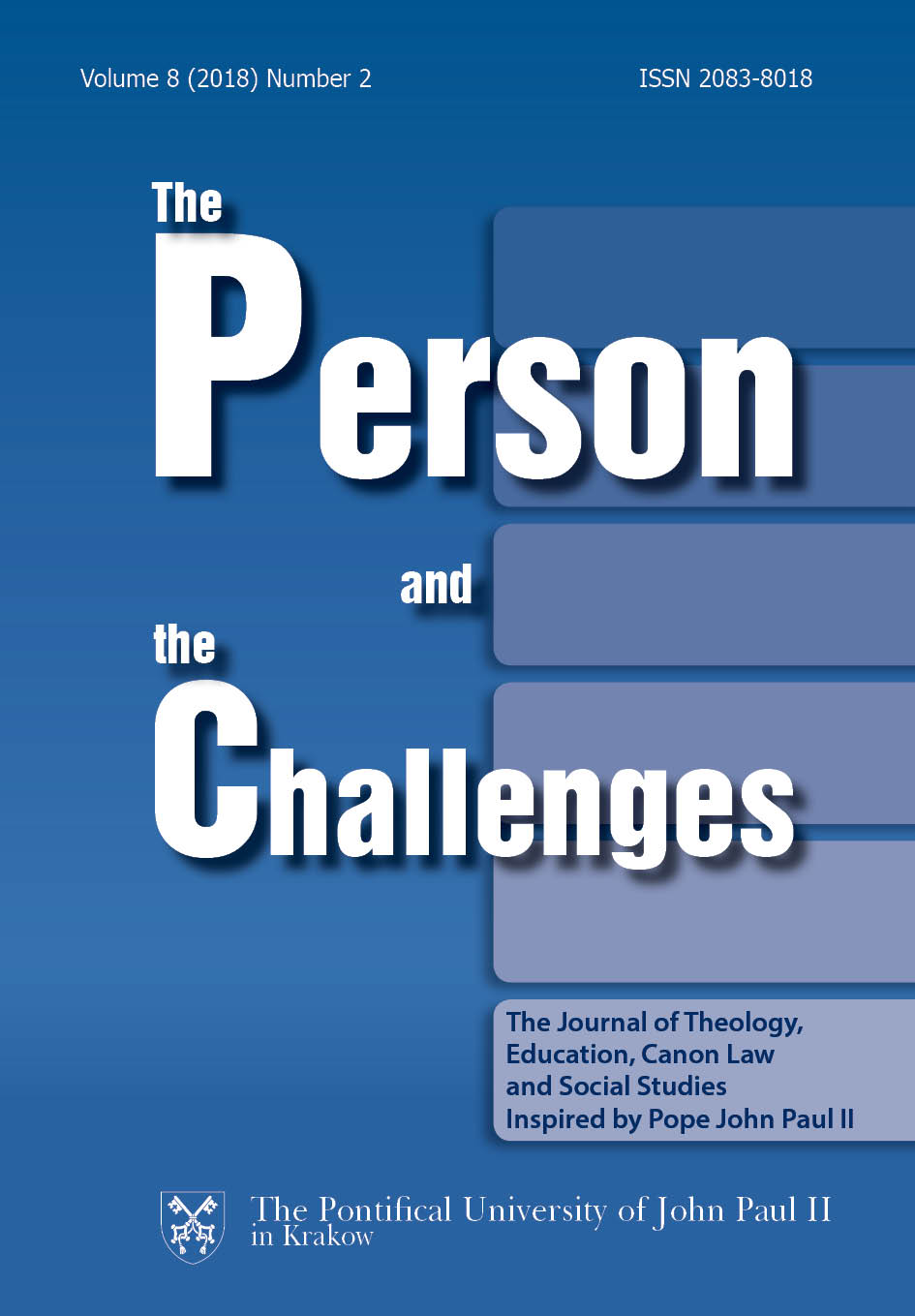Spirituality and psycho-organic regulation
DOI:
https://doi.org/10.15633/pch.2567Słowa kluczowe:
psycho-organic spiritual structure, trauma, relational trauma, grace, sacramental lifeAbstrakt
Traumatic experiences are very important for the psycho-organic regulation of an individual. These experiences can very profoundly mark an individual, especially if they happened in childhood. They can be very disruptive and they scream for healing. In this process of healing spirituality plays a crucial role. Religiousness and sacramental life can be an essential regulatory system in the establishment of a functional psycho–organic response and spiritual life.
Bibliografia
Briere J., Scott C., Principles of trauma therapy: A guide to symptoms, evaluation, and treatment, 2nd ed; Thousand Oaks 2014, Sage Publications.
Cvetek M., Children’s comprehension of the religious story affected by their emotional capacities, in: Challenges to religious education in contemporary society, J. Garmaz, A. Čondić (eds.), Split 2017, Crkva u svijetu, p. 249-61.
Cvetek R., Bolečina preteklosti: Travma, medosebni odnosi, družina, terapija: Pain of the past: Trauma, interpersonal relationships, family, therapy, Celje 2009, Društvo Mohorjeva družba, Celjska Mohorjeva družba.
Fonagy P., Gergely E. G., Jurist E. L., Target M., Affect regulation, mentalization, and the development of the self, New York 2007, Other Press.
Fosha D., Siegel D. J., Solomon M. F. (eds.), The healing power of emotion: Affective neuroscience, development, and clinical practice, New York 2009, W. W. Norton & Company.
Gostečnik C., Repič Slavič T., Poljak Lukek S., Cvetek R., Trauma and religiousness, »Journal of Religion and Health« 53 (2014) 3, p. 690–701.
Jerebic D., The role of Catholic communities in forming the image of the merciful God: arriving at the image of the merciful God through the previous experience of mercy in interpersonal relationships, in: Challenges to religious education in contemporary society, J. Garmaz, A. Čondić (eds.), Split 2017, Crkva u svijetu, p. 319–32.
Kaplow J. B., Widom C. S., Age of onset of child maltreatment predicts long-term mental health outcomes, »Journal of Abnormal Psychology« 116 (2007), p. 176–87.
Ogden P., Fisher J., Sensorimotor psychotherapy: Interventions for trauma and attachment, New York 2015, W. W. Norton & Company.
Petkovšek R., Nasilje in etika križa v luči eksistencialne analitike in mimetične teorije: Violence and ethics of the cross in the light of existential analytics and mimetic theory, »Bogoslovni vestnik« 74 (2014) 4, p. 575–92.
Repič Slavič T., Gostečnik C., Relational family therapy as an aid toward resolving the trauma of sexual abuse in childhood in the process of separation in the couple relationship, »Journal of marital and family therapy« 43 (2017) 3, p. 422–34.
Rizzuto A., Freud and the spoken word: Speech as a key to the unconscious, New York 2015, Routledge.
Rothschild B., The body remembers volume 2: Revolutionizing trauma treatment, New York 2017, W. W. Norton & Company.
Schmelzer G. L., Journey through trauma: A trail guide to the 5-phase cycle of healing repeated trauma, New York 2018, Avery Publishing Group.
Schore A., Affect regulation and the origin of the self: The neurobiology of emotional development, New York 2016, Taylor & Frances/Routledge.
Siegel D. J., The mindful brain: Reflection and attunement in the cultivation of well-being, 2007 New York, W. W. Norton & Company.
Siegel D. J., Bryson T. P., The whole-brain child: Revolutionary strategies to nurture your child’s developing mind, New York 2011, Delacorte Press.
Simonič B., Rijavec Klobučar N., Experiencing positive religious coping in the process of divorce: A qualitative study, »Journal of Religion and Health« 56 (2017) 5, p. 1644–54.
Stern D., Forms of vitality: Exploring dynamic experience in psychology, arts, psychotherapy and development, New York 2010, Oxford University Press.
Van der Kolk B., The body keeps the score: Mind, brain and body in the transformation of trauma, New York 2014, Penguin Books.
Pobrania
Opublikowane
Numer
Dział
Licencja
Prawa autorskie (c) 2018 Robert Cvetek, Christian Gostečnik, Tanja Pate, Barbara Simonič, Tanja Valenta, Tanja Repič Slavič

Utwór dostępny jest na licencji Creative Commons Uznanie autorstwa 4.0 Międzynarodowe.
Autorzy publikujący w czasopiśmie udzielają jego wydawcy zgody o następującej treści:
- Autor zachowuje autorskie prawa majątkowe do utworu, a jednocześnie udziela wydawcy czasopisma zgody na jego pierwszą publikację w wersji drukowanej i wersji online na licencji Creative Commons Uznanie autorstwa 4.0 Międzynarodowe oraz zgody na wykonywanie opracowań, w tym przekładów.
- Autor ma możliwość udzielania zgody niewyłącznej na opublikowanie utworu w wersji, która ukazała się w czasopiśmie (np. zamieszczenia go w repozytorium instytucjonalnym lub opublikowania w książce), wraz z informacją o jego pierwszej publikacji w czasopiśmie.
- Autor może umieścić swój utwór online (np. w repozytorium instytucjonalnym lub na swojej stronie internetowej) jeszcze przed zgłoszeniem utworu do czasopisma.

